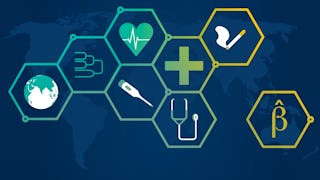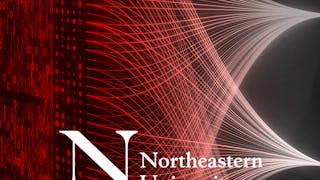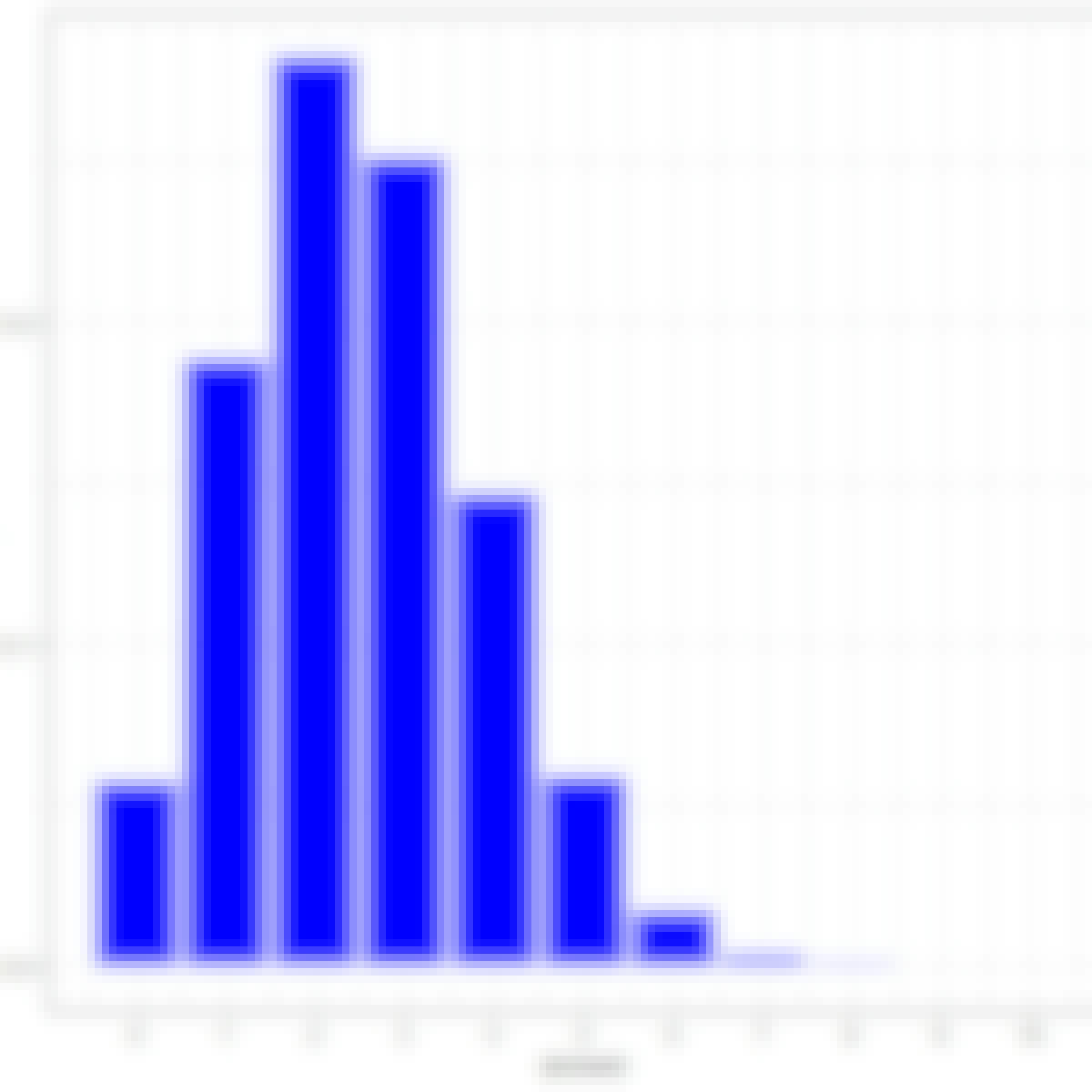- Browse
- Statistical Inference
Statistical Inference Courses
Statistical inference courses can help you learn hypothesis testing, confidence intervals, regression analysis, and data interpretation. You can build skills in analyzing sample data, making predictions, and drawing conclusions about larger populations. Many courses introduce tools like R and Python for statistical programming, as well as software for data visualization, which enhance your ability to apply statistical methods effectively.
Popular Statistical Inference Courses and Certifications
 Status: Free TrialFree TrialI
Status: Free TrialFree TrialIIllinois Tech
Skills you'll gain: Bayesian Statistics, Data Analysis, Statistical Inference, Regression Analysis, Statistical Analysis, Statistical Modeling, Statistical Programming, Sampling (Statistics), R Programming, Markov Model, Logistic Regression, Probability, Simulations, Model Evaluation, Probability Distribution
Build toward a degree
Intermediate · Course · 1 - 3 Months
 Status: Free TrialFree TrialU
Status: Free TrialFree TrialUUniversity of Colorado Boulder
Skills you'll gain: Statistical Modeling, Statistical Machine Learning, Data Science, Statistical Methods, Statistical Analysis, Model Evaluation, Regression Analysis, Predictive Modeling, R Programming, Machine Learning, Classification Algorithms, Supervised Learning, Unsupervised Learning, Machine Learning Algorithms
Build toward a degree
3.9·Rating, 3.9 out of 5 stars15 reviewsIntermediate · Course · 1 - 3 Months
 Status: Free TrialFree Trial
Status: Free TrialFree TrialSkills you'll gain: Statistical Hypothesis Testing, Statistical Methods, Sample Size Determination, Statistical Inference, Estimation, Statistics, Probability & Statistics, Sampling (Statistics), Statistical Analysis, Microsoft Excel, Excel Formulas, Data Analysis, Decision Making
4.8·Rating, 4.8 out of 5 stars1.3K reviewsMixed · Course · 1 - 4 Weeks
 Status: Free TrialFree TrialU
Status: Free TrialFree TrialUUniversity of Michigan
Skills you'll gain: Statistical Modeling, Regression Analysis, Statistical Methods, Statistical Inference, Probability & Statistics, Correlation Analysis, Data Analysis, Statistical Analysis, Statistical Hypothesis Testing
Intermediate · Course · 1 - 4 Weeks
 Status: Free TrialFree Trial
Status: Free TrialFree TrialSkills you'll gain: Statistical Hypothesis Testing, Statistical Analysis, Correlation Analysis, SAS (Software), Regression Analysis, Statistical Methods, Probability & Statistics, Statistical Modeling, Plot (Graphics), Statistical Inference
4.7·Rating, 4.7 out of 5 stars174 reviewsIntermediate · Course · 1 - 4 Weeks
 Status: NewNewStatus: PreviewPreviewN
Status: NewNewStatus: PreviewPreviewNNortheastern University
Skills you'll gain: Statistical Hypothesis Testing, Statistical Inference, Sampling (Statistics), Statistical Reporting, Statistical Methods, Probability & Statistics, Statistical Analysis, Experimentation, Data Analysis, Data Presentation, Estimation
Mixed · Course · 1 - 3 Months
 Status: NewNewStatus: Free TrialFree Trial
Status: NewNewStatus: Free TrialFree TrialSkills you'll gain: Regression Analysis, Statistical Analysis, Time Series Analysis and Forecasting, Logistic Regression, R Programming, Statistical Hypothesis Testing, Probability & Statistics, Statistical Modeling, R (Software), Statistical Methods, Predictive Modeling, Generative AI, Rmarkdown, Forecasting, Descriptive Statistics, Power BI, Ggplot2
Beginner · Course · 1 - 3 Months
 Status: PreviewPreviewC
Status: PreviewPreviewCColumbia University
Skills you'll gain: Statistical Inference, Econometrics, Mediation, Advanced Analytics, Statistical Analysis, Regression Analysis, Time Series Analysis and Forecasting, Statistical Methods, Statistical Modeling, Research Design
3.3·Rating, 3.3 out of 5 stars15 reviewsAdvanced · Course · 1 - 3 Months
 Status: PreviewPreviewU
Status: PreviewPreviewUUniversity of Leeds
Skills you'll gain: Exploratory Data Analysis, Data Cleansing, Statistical Methods, Statistical Modeling, Data Visualization, Statistics, R (Software), Data Analysis, Descriptive Statistics, Data Preprocessing, Box Plots, Data Visualization Software, Histogram, Probability, Probability Distribution
4.6·Rating, 4.6 out of 5 stars9 reviewsIntermediate · Course · 1 - 4 Weeks

Skills you'll gain: Statistical Inference, Probability Distribution, R Programming, Statistical Visualization, Statistics, Data Visualization, Statistical Analysis, Statistical Modeling, Statistical Hypothesis Testing, Data Analysis, Probability
4.8·Rating, 4.8 out of 5 stars32 reviewsBeginner · Guided Project · Less Than 2 Hours
 Status: Free TrialFree TrialU
Status: Free TrialFree TrialUUniversity of Colorado Boulder
Skills you'll gain: Descriptive Statistics, Statistical Hypothesis Testing, Regression Analysis, Probability Distribution, Statistical Analysis, R Programming, Data Import/Export, Statistical Modeling, Statistical Methods, Tidyverse (R Package), Data Literacy, Plot (Graphics), Statistics, Data Manipulation, Data Analysis, Statistical Inference, Data Structures
4.8·Rating, 4.8 out of 5 stars6 reviewsIntermediate · Course · 1 - 3 Months
 Status: PreviewPreviewT
Status: PreviewPreviewTTufts University
Skills you'll gain: Statistical Hypothesis Testing, Statistical Inference, Microsoft Excel, Quantitative Research, Probability & Statistics, Statistical Analysis, Analytical Skills, Statistics, Business Analytics, Python Programming, Technical Communication
4.2·Rating, 4.2 out of 5 stars24 reviewsIntermediate · Course · 1 - 4 Weeks
Searches related to statistical inference
In summary, here are 10 of our most popular statistical inference courses
- Bayesian Computational Statistics: Illinois Tech
- Regression and Classification: University of Colorado Boulder
- Business Applications of Hypothesis Testing and Confidence Interval Estimation : Rice University
- Linear Regression Modeling for Health Data: University of Michigan
- Introduction to Statistical Analysis: Hypothesis Testing: SAS
- Engineering Probability and Statistics Part 2: Northeastern University
- Statistical Analysis and Advanced Techniques: Microsoft
- Causal Inference 2: Columbia University
- Exploratory Data Analysis: University of Leeds
- Using probability distributions for real world problems in R: Coursera










